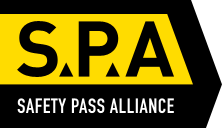A steel foundry has been sentenced after a South Yorkshire worker was killed when he was struck in the face by a shard from an abrasive disc that exploded from a hand-held grinding machine.
Stuart Stead, 49, of Mexborough, Doncaster, was using the hand-held grinder while he worked on a casting at H.I. Quality Steel Castings Ltd in Forncett Street, Sheffield, on 7 March 2012.
As he used the high-frequency machine, the disc fitted to it suddenly exploded catapulting fragments across his workbay. A shard went straight through Mr Stead’s visor and hit him in the mouth.
Mr Stead, a father of three grown-up children, received fatal injuries and was pronounced dead at the scene.
The incident was investigated by the Health and Safety Executive (HSE), which today 11 May prosecuted H.I. Quality Steel Castings at Sheffield Crown Court. The company pleaded guilty to a serious safety breach at an earlier court appearance (9 Feb).
HSE found the abrasive disc was nine inches in diameter although the grinder had a maximum permissible tool diameter of only two inches unless guarded. It was also attached to the grinder using a non-proprietary tool. In addition the disk was rated for 6650 rpm but the grinder was running at 12,000 rpm.
The grinder had no guard so as it exploded, the pieces were forcibly expelled across the bay, one ending up some ten metres away.
Two of Mr Stead’s work colleagues, who were nearby, said later they had heard a loud bang and one turned to see him collapse to the floor. They ran to his aid and saw the visor broken and the piece of disk in Mr Stead’s mouth.
HSE said the excessive speed of the grinder coupled with the added load caused by the non-standard attachment had put stresses on the disc way beyond its capacity, resulting in its catastrophic failure.
The court was told that HSE’s investigation had uncovered a number of previous incidents when discs had come off grinders. However, none of these had been mentioned in monthly minutes of the company’s health and safety meetings for the site.
These included:
- In 2011 a 230mm diameter disc suffered a blade disintegration and part went through the foundry roof
- A sand disc attached to a grinder using an adaptor shattered and put a hole in a bench and shattered a light fitting 30 feet up
- A disc flew off a grinder, being used by Mr Stead, which was never found
- A cutting disc bounced off the stomach of another worker.
- And in the week before the fatality – a lump came off a disc Mr Stead was using and shot down the workshop hitting another worker under the eye.
HSE said H.I. Quality Steel Castings Ltd had allowed the use of unsafe combinations of parts with the grinders, many of which were unguarded. Despite some initial training in abrasive wheels, employees did not understand rotation speeds of machines versus discs and had free access to a wide variety of them, contributing to the prevalence of unsafe combinations.
The company also failed to monitor disc/grinder use so unsafe practices were not picked up and near miss incidents were not properly investigated.
H.I. Quality Steel Castings Ltd of Foundry Street, Whittington Moor, Chesterfield, was fined £150,000 and ordered to pay £24,000 in costs after admitting breaching section 2(1) of the Health and Safety at Work etc Act 1974.
After the hearing, HSE inspector Jill Thompson said:
“This was a horrific incident that devastated Mr Stead’s wife, his children and wider family. It is also, tragically, one that could have been avoided had the company focused on its responsibility to ensure the safety of their employees.
“The safety of Mr Stead and others was not ensured while using hand-held grinders. If monitoring and supervision had been provided to ensure necessary precautions were followed, this tragic incident would not have happened.
“The near-misses should have been a big warning flag to H.I. Quality Steel Castings that there was a serious risk that a worker could be severely injured or killed.
“Employers must make sure that all work involving grinding is assessed for safety to make sure that poor or potentially dangerous practices are removed.”
Visit http://www.hse.gov.uk for free guidance on safety in use of abrasive wheels.
Notes to Editors:
The Health and Safety Executive is Britain’s national regulator for workplace health and safety. It aims to reduce work-related death, injury and ill health. It does so through research, information and advice; promoting training; new or revised regulations and codes of practice; and working with local authority partners by inspection, investigation and enforcement. www.hse.gov.uk
Section 2(1) of the Health and Safety at Work etc Act 1974 states: “It shall be the duty of every employer to ensure, so far as is reasonably practicable, the health, safety and welfare at work of all his employees.”
HSE news releases are available at http://press.hse.gov.uk/.




















